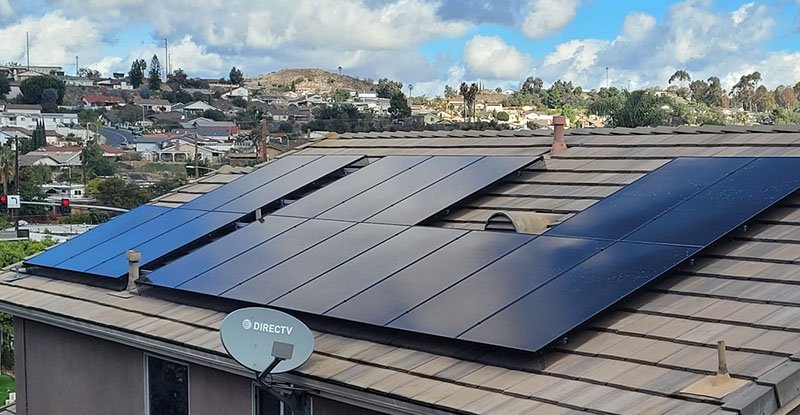Solar power has emerged as a revolutionary source of renewable energy in recent years. With the rising awareness of climate change and the need for sustainable energy solutions, solar panels have gained significant attention. In this article, we will delve into the fascinating world of solar panels and uncover the science behind how they work. So, let’s shine a light on solar power and explore how it’s harnessed from the sun.
Table of Contents
- 1 Introduction
- 2 The Basics of Solar Panels
- 3 The Photovoltaic Effect
- 4 Absorption of Solar Energy
- 5 Generation of Electricity
- 6 Inverters: Converting DC to AC
- 7 Connecting to the Grid
- 8 Storing Excess Energy
- 9 Efficiency and Environmental Benefits
- 10 Maintenance and Durability
- 11 Solar Power in Canberra
- 12 Future Trends in Solar Technology
- 13 Cost Considerations
- 14 Government Incentives
- 15 Conclusion
- 16 FAQs
Introduction
The sun, a colossal ball of fire, emits an unfathomable amount of energy every day. Harnessing this energy is what solar panels are all about. They are designed to capture sunlight and convert it into electricity that can power our homes, businesses, and even entire cities. But how do these marvels of technology accomplish this incredible feat?
The Basics of Solar Panels
2.1 What Are Solar Panels?
Solar panels, also known as photovoltaic panels, are devices made up of solar cells that capture sunlight and convert it into electricity. These panels are typically installed on rooftops or in open fields where they can be exposed to maximum sunlight.
2.2 Types of Solar Panels
There are several types of solar panels available today, including monocrystalline, polycrystalline, and thin-film. Each type has its own advantages and disadvantages, making them suitable for various applications.
The Photovoltaic Effect
At the heart of solar panel functionality lies the photovoltaic effect. This phenomenon occurs when certain materials, such as silicon, absorb photons from sunlight and release electrons. These freed electrons create an electric current.
Absorption of Solar Energy
4.1 The Role of Photons
Photons, the tiny packets of energy in sunlight, play a pivotal role in solar energy generation. When they strike the solar panel’s surface, they transfer their energy to electrons in the semiconductor material.
4.2 The Semiconductor Magic
Solar panels are constructed with semiconductor materials, usually silicon. Silicon’s unique properties enable it to facilitate the movement of electrons when exposed to sunlight. This movement is what generates electricity.
Generation of Electricity
As electrons flow through the solar panel’s cells, they create a direct current (DC) electrical flow. However, most of our household appliances and electrical grids require alternating current (AC). This is where inverters come into play.
Inverters: Converting DC to AC
Inverters are essential components that convert the DC produced by solar panels into the AC required for our homes and the grid. They ensure that the electricity generated is compatible with our everyday needs.
Connecting to the Grid
Excess energy generated by solar panels can be fed back into the grid. This not only reduces your electricity bills but also contributes to a cleaner energy mix for your community.
Storing Excess Energy
To ensure a continuous power supply, many solar setups incorporate energy storage systems. Batteries store excess energy generated during sunny days, which can be used during cloudy periods or at night.
Efficiency and Environmental Benefits
9.1 Solar Power and Reducing Carbon Footprint
One of the most significant advantages of solar power is its environmental impact. By relying on the sun’s energy, we reduce our dependence on fossil fuels, leading to a significant reduction in greenhouse gas emissions.
9.2 Energy Independence
Solar panels provide a degree of energy independence. With your own power source, you are less vulnerable to energy shortages and price fluctuations.
Maintenance and Durability
Solar panels are known for their durability and low maintenance requirements. With proper care, they can last for decades, providing a reliable source of clean energy.
Solar Power in Canberra
The Australian capital, Canberra, is no stranger to the benefits of solar power. With ample sunlight throughout the year, it’s an ideal location for harnessing solar energy.
Future Trends in Solar Technology
12.1 Thin-Film Solar Panels
Thin-film solar panels are gaining popularity due to their flexibility and ease of installation. They are lightweight and can be integrated into various surfaces.
12.2 Solar Paint
Innovations like solar paint are on the horizon, promising even more versatile ways to capture solar energy. Imagine painting your house with a substance that generates electricity!
Cost Considerations
While the initial cost of installing solar panels may seem high, it’s essential to consider the long-term savings and environmental benefits.
Government Incentives
Many governments, including Australia, offer incentives and subsidies to encourage the adoption of solar power canberra. These incentives can significantly reduce the cost of installation.
Conclusion
Solar panels have revolutionized the way we harness energy from the sun. They not only provide a sustainable energy source but also offer numerous environmental and economic benefits. By understanding how solar panels work, we can appreciate their significance in the transition to a greener and more sustainable future.
FAQs
1. How long do solar panels typically last?
A: Solar panels can last up to 25-30 years or more with proper maintenance.
2. What happens on cloudy days?
A: Do solar panels still work? Solar panels can generate some electricity on cloudy days, although their efficiency is lower than on sunny days.
3. Are there any drawbacks to solar power in Canberra?
A: While Canberra receives ample sunlight, extreme weather conditions can affect solar panel performance.
4. Do I need a battery storage system for my solar panels?
A: Battery storage is optional but can provide backup power and further reduce reliance on the grid.
5. How much money can I save with solar panels in Canberra?
A: Savings can vary, but many homeowners in Canberra see a significant reduction in their electricity bills after installing solar panels.





